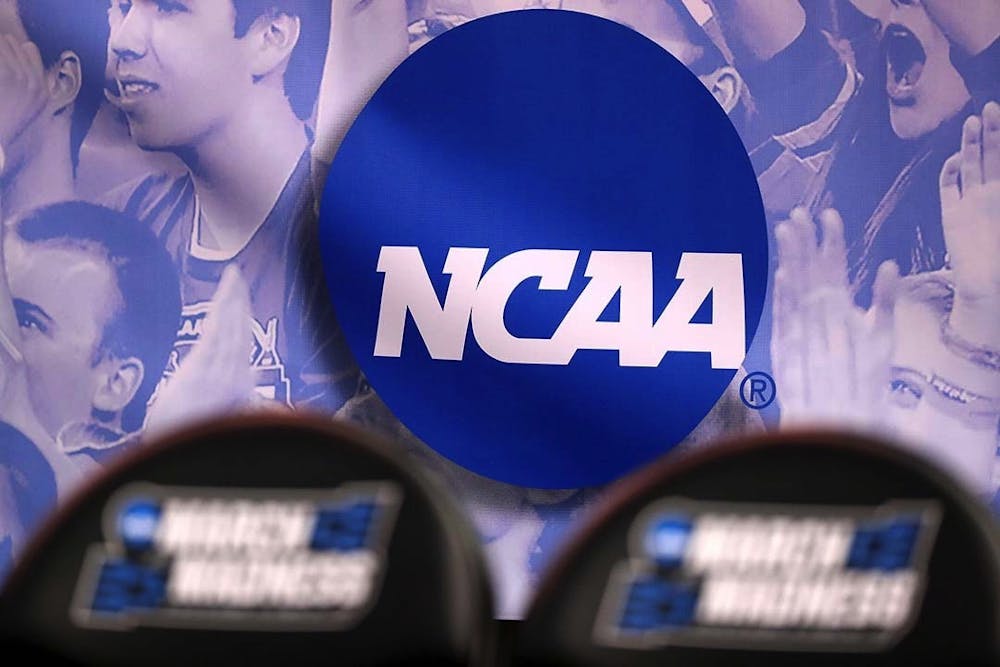The landscape of college athletics is changing rapidly. After years of debate, scandals and legal action, the NCAA changed its rules to allow student-athletes to earn money off their name, image and likeness (NIL).
Pressure has been on the NCAA to change its rules and allow athletes to earn money off their NIL for years. It was clear change was coming when California passed its Fair Play to Pay act in 2019. One month later, the NCAA’s board of governors agreed to modernize its NIL rules by January 2021.
The NCAA failed to set its rules by this deadline, so teams and states worked together to pass their own laws. Schools in South Carolina joined forces and encouraged state representatives to take action so they do not lose any advantages in recruiting.
“Florida is going to have a competitive advantage over us in recruiting and other things, their student-athletes are going to be able to take advantage of (NIL) and ours aren't," USC senior deputy athletics director Chance Miller said. "We got together with Clemson and Coastal Carolina and others to start shaping a state legislative relief for name, image and likeness."
In May, South Carolina Gov. Henry McMaster signed a bill into law that allows college athletes in the state to earn compensation off their NIL, which would take effect July 2022.
Then on Jun. 30, the NCAA’s board of directors adopted a new temporary rule change that allowed NIL activity for all student-athletes immediately. The NCAA informed schools to set their own policy for what should be allowed with minimal guidelines.
Just like that, the floodgates opened and players from a variety of sports started announcing NIL deals.
Sophomore guard Brea Beal announced a deal with Cameo, making her the first Gamecock athlete that announced a NIL deal. Later teammate and junior forward Aliyah Boston also announced a deal with Cameo.
“Hey fams, I’m on Cameo now! I’m super excited to connect with you all for; birthdays, pep talks, gender reveals, or surprises of any kind! I’m here for anything you need!” Beal said in her tweet announcing the deal.
Bojangles took advantage of new NIL rules by inking deals with college athletes all over the region. Nine Gamecock athletes have deals with Bojangles. Five of them are football players and the other four are women’s basketball players.
Not all NIL deals go to football or basketball players. Athletes from all sports can monetize off their NIL. Junior beach volleyball player Kaeli Crews, senior track athlete Stephanie Davis and junior guard Olivia Thompson signed deals with Post Up Careers.
“You’re seeing athletes across the board with all sports throughout the country that are getting name image and likeness deals,” Miller said. “What we are finding is it is based off people that have been smart within their branding and their social media platforms and have a lot of followers and are using that platform to be able to delve into a business world."
Some athletes found fun and creative ways to monetize off their name image and likeness. Fifth-year tight-end Nick Muse launched his own clothing line that features a picture of himself in a cropped jersey next to the words “Big Nick Energy.”
To student-athletes on the in's and out's of NIL and building their personal brand, the university athletic department partnered with Altius Sports Partners (ASP) to teach the players how to navigate this new business.
“Altius came in early on and they’ve been with us helping us from an educational side," USC associate athletics director for administration Hilary Cox said. "They answer questions from our student-athletes directly and that’s been really helpful.”
The university has made it clear it wants to provide student-athletes with as many resources as it can to benefit from the new rules.
“NIL is what our student-athletes want it to be. We can’t be involved in soliciting those activities or anything like that, but we want to put as many resources in front of our student-athletes as possible so should they need help with this area or that area then they have a resource and someone to turn to,” Cox said.
The rule changes are still fresh, and we do not know the long-term effects the change will have on collegiate sports. One thing that is guaranteed is that college sports will never be the same again.
“I think it’s just the start of a wave of changes that we are going to see,” Cox said. “It’s a great opportunity for everyone and we’re certainly going to do everything we can to help our student-athletes maximize these opportunities.”

